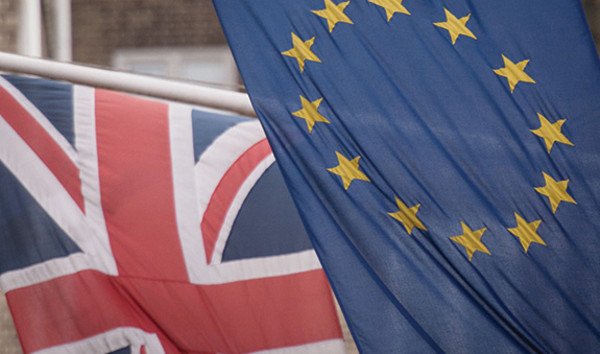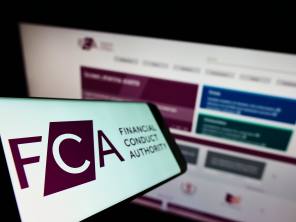

Industry performance analysis, conducted by challenger wealth manager Netwealth, has suggested investor uncertainty would have cost them between £4,400 and £9,100 in 2019 subject to the investment style undertaken, based on a £50,000 portfolio.
This came as a survey of 1,080 UK adults by Netwealth revealed more than two-fifths of people had been deterred from putting new money into investments because of Brexit uncertainty.
Meanwhile 38 per cent of investors were deterred by wider UK political uncertainty and 33 per cent by the prospect, in the run-up to December’s general election, of a Labour government and its economic implications.
Despite delaying their investment plans in 2019, 30 per cent believed that any investment made would have increased in value.
Investment Style | Industry performance | Returns based on £50k investment | Cost of caution |
Cautious Allocation (up to 40% Equities)) | 8.8% | £54,400 | £4,400 |
Moderate Allocation (up to 60% Equities) | 12.4% | £56,200 | £6,200 |
Adventurous Allocation (Up to 75% Equities) | 18.2% | £59,100 | £9,100 |
Iain Barnes, head of portfolio management for Netwealth, said: “It’s clear that prospective UK investors have been put off by the ongoing uncertainty around Brexit and the volatility of the political landscape throughout 2019.
“This cautious approach has led many to miss out on potentially healthy investment returns. Investors should recognise that there will always be risks to investing. Ensuring you have a balanced and well-diversified portfolio will minimise exposure to individual events and enable you to benefit from the returns that long term investment can offer.”
But despite more certainty over the political landscape, almost half of respondents with assets totalling £50,000 and above (47 per cent) reported they were still unlikely to invest in the next 12 months, with Brexit remaining a key concern for 36 per cent of these respondents alongside concerns about a wider recession within the UK (32 per cent).
In addition, one in 10 said they had been put off from the fallout from the Neil Woodford failure, highlighting the impact of the reputational challenges faced by the sector in 2019.
Brexit | 36% |
The uncertainty of UK politics beyond Brexit | 35% |
Concerns about a recession in the UK economy | 32% |
Lack of transparency within the investment industry | 18% |
Woodford/patient capital scandal | 10% |
Charlotte Ransom, chief executive of Netwealth, said: “These findings clearly highlight that the industry must do more to engage potential investors and emphasise the value of time in the market, rather than timing the market.
“For many, their caution is misplaced versus the horizon of their financial goals and may cause them to miss out on important returns that could be highly beneficial to their long-term finances.
“The industry should also accept the role it has played in exacerbating mistrust among investors. In 2020, we must see greater commitment to end the exorbitant, opaque and complex fees that for too long have eroded investor returns.
“Only by getting this right can we start to change investor attitudes, enabling them to reap the benefits that intelligent and efficient investment can bring to their long-term financial welfare.”
A similar piece of research, carried out by YouGov among 1,664 UK adults on behalf of insurer Royal London, found pessimism among investors had started to diminish after the December 12 general election brought more political certainty.
The research showed the proportion of Brits who think their finances will improve after Brexit rose by 5 percentage points in the last quarter, from 6 per cent in August 2019 to 11 per cent of the population in the days following the general election, the highest level of optimism since December 2018.
Conversely, the level of pessimism about the impact of Brexit on personal finances declined slightly in the last quarter, from 36 per cent of people who believe their finances will worsen after Brexit in September, down to 34 per cent in December 2019, according to the survey by YouGov on behalf of Royal London, the mutual insurer. There are now three pessimists for every optimist, compared with six pessimists for every optimist in summer last year.
However, the most commonly held view, shared by nearly two in five (39 per cent) Brits, continues to be that household finances will remain the same. This proportion has remained largely consistent since the quarterly Brexit and personal finances survey began just over a year ago.
Becky O’Connor, personal finance specialist at Royal London, said: “Most Brits continue to think Brexit will not have much impact on their personal finances. Despite a near doubling in the proportion of the population who are optimistic, there remains significantly more pessimism than optimism overall.
“The only thing that can end this ongoing uncertainty about the impact of Brexit on the nation’s fortunes, as well as the stark divisions in expectations, is Brexit itself.”
simoney.kyriakou@ft.com
What do you think about the issues raised by this story? Email us on fa.letters@ft.com to let us know.



